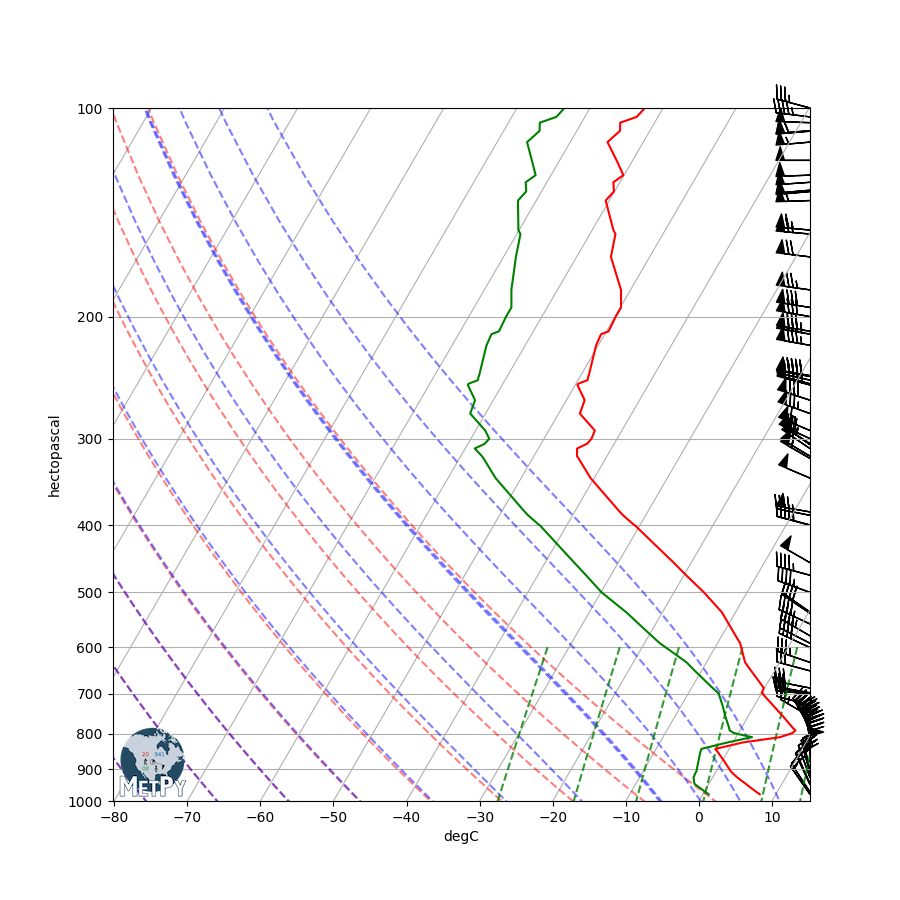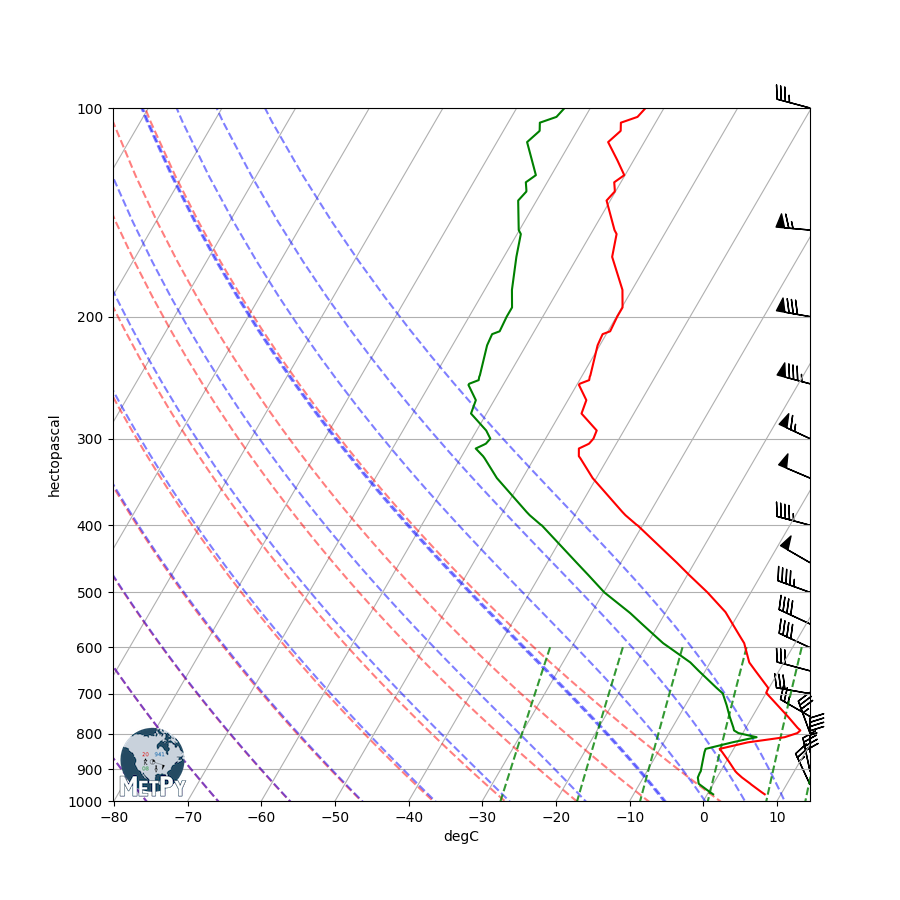Simple Sounding¶
Use MetPy as straightforward as possible to make a Skew-T LogP plot.
import matplotlib.pyplot as plt
import numpy as np
import pandas as pd
import metpy.calc as mpcalc
from metpy.cbook import get_test_data
from metpy.plots import add_metpy_logo, SkewT
from metpy.units import units
# Change default to be better for skew-T
plt.rcParams['figure.figsize'] = (9, 9)
# Upper air data can be obtained using the siphon package, but for this example we will use
# some of MetPy's sample data.
col_names = ['pressure', 'height', 'temperature', 'dewpoint', 'direction', 'speed']
df = pd.read_fwf(get_test_data('jan20_sounding.txt', as_file_obj=False),
skiprows=5, usecols=[0, 1, 2, 3, 6, 7], names=col_names)
df['u_wind'], df['v_wind'] = mpcalc.get_wind_components(df['speed'],
np.deg2rad(df['direction']))
# Drop any rows with all NaN values for T, Td, winds
df = df.dropna(subset=('temperature', 'dewpoint', 'direction', 'speed',
'u_wind', 'v_wind'), how='all').reset_index(drop=True)
We will pull the data out of the example dataset into individual variables and assign units.
skew = SkewT()
# Plot the data using normal plotting functions, in this case using
# log scaling in Y, as dictated by the typical meteorological plot
skew.plot(p, T, 'r')
skew.plot(p, Td, 'g')
skew.plot_barbs(p, u, v)
# Add the relevant special lines
skew.plot_dry_adiabats()
skew.plot_moist_adiabats()
skew.plot_mixing_lines()
skew.ax.set_ylim(1000, 100)
# Add the MetPy logo!
fig = plt.gcf()
add_metpy_logo(fig, 115, 100)

# Example of defining your own vertical barb spacing
skew = SkewT()
# Plot the data using normal plotting functions, in this case using
# log scaling in Y, as dictated by the typical meteorological plot
skew.plot(p, T, 'r')
skew.plot(p, Td, 'g')
# Set spacing interval--Every 50 mb from 1000 to 100 mb
my_interval = np.arange(100, 1000, 50) * units('mbar')
# Get indexes of values closest to defined interval
ix = mpcalc.resample_nn_1d(p, my_interval)
# Plot only values nearest to defined interval values
skew.plot_barbs(p[ix], u[ix], v[ix])
# Add the relevant special lines
skew.plot_dry_adiabats()
skew.plot_moist_adiabats()
skew.plot_mixing_lines()
skew.ax.set_ylim(1000, 100)
# Add the MetPy logo!
fig = plt.gcf()
add_metpy_logo(fig, 115, 100)
# Show the plot
plt.show()

Total running time of the script: ( 0 minutes 0.957 seconds)